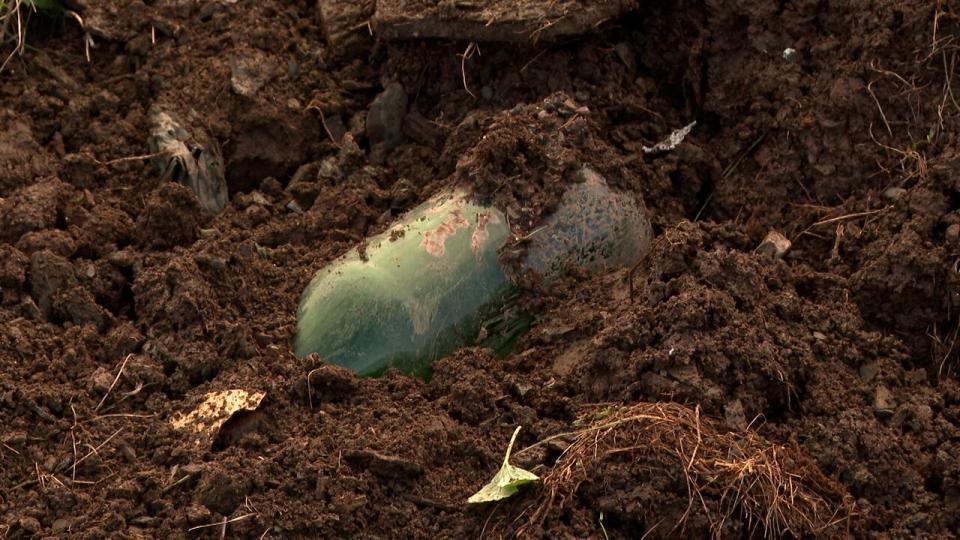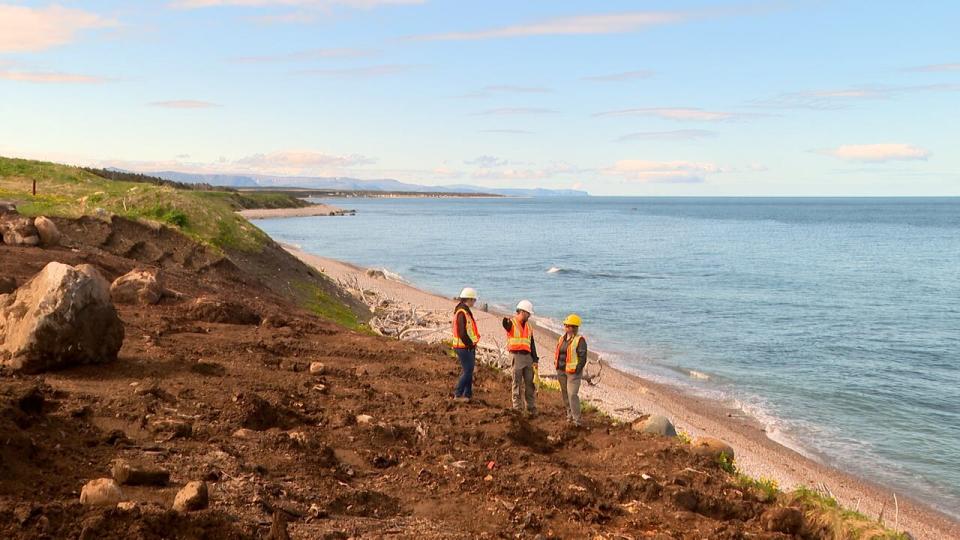Parks Canada guts a 50-year-old dump in Gros Morne

Truck load after truck load of waste is leaving a 1970s landfill site at Martin's Point in Gros Morne National Park this week.
The remediation of the former dump is part of a federal project to clean up contaminated sites that are at risk to human health or the environment.
"For Parks Canada, our idea is to provide a pristine environment for Canadians to come and visit and look at the sites. Its really important for us. That's was the main concern about this site," said Vincent Lussier, senior project manager of contaminated sites.
An excavator scoops soil filled with glass bottles, clothing and car parts into the back of a dump truck that overlooks a beautiful rocky beach and coastline. Lobster fisherman check their traps under the hot sun, less than 100 meters from the remediation site.
"We have found plastic bottles, glass bottles. We found one car frame and car parts all over the place. Mostly like rubber boots, a lot of rubber boots, dolls. Basic household stuff," said Lussier.

Most of the waste at the Martin's Point landfill site is household waste like glass bottles and clothing. (Colleen Connors/CBC )
Just four kilometres north of Sally's Cove, in the heart of the national park, Martin's Point used to be a quarry site that was an easily accessible spot to dump garbage for residents living in neighbouring communities in the 70s.
This remediation project has been in the works for about five years. It started with crews investigating 700 metres along the coastline because it was unclear exactly where the landfill was located.
But, bits and pieces of debris were falling into the nearby ocean.
"We could see exposed waste along the bank, and that is why we decided to remove it," said Lussier.
Early testing discovered lead and other metals are contaminating the soil, and erosion is allowing these materials to leach into the beach and ocean.

Lussier and Parks Canada staff supervise the remediation of an old landfill in Gros Morne National Park. (Colleen Connors/CBC )
"There wasn't much contamination, but we had a concern that the waste might be washed off into the ocean. In case of climate change, sea level rise, storm surge and wave climate, there is a potential issue that that waste gets into the ocean and that was our main concern," said Lussier.
The project is part of the Federal Contaminated Sites Action Plan, which was established in 2005, with over $4 billion in funding from the federal government. Martin's Point landfill is one of 23,663 sites in Canada listed as a federal contaminated site.
Now, all the waste is getting shipped to a proper landfill site in Hawke's Bay — the closest landfill that will take contaminated waste.
It will take until June 15 to clean up. Tourists and travellers in the area should expect traffic slowdowns and stops while the dump trucks enter and exit the landfill site.
Download our free CBC News app to sign up for push alerts for CBC Newfoundland and Labrador. Click here to visit our landing page.

